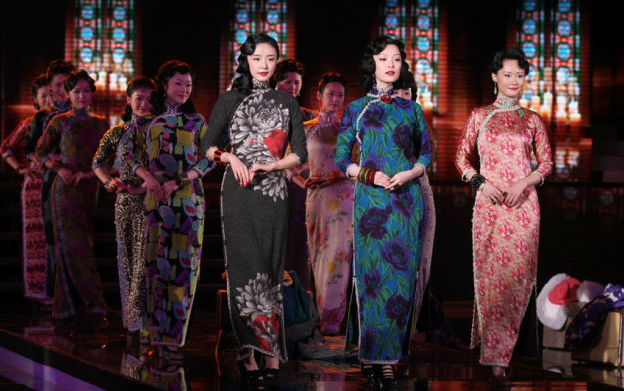
【電影簡介】
1937年,日軍入侵南京,戰火中,六朝古都化為廢墟,眾多中國軍民被困城中。一支十數人的國軍德械教導隊余部在長官李教官(佟大為飾)指揮下,從日軍手中救出了一批教會學校女學生,而李教官等人,至此喪失了出城的機會。幸免于難的書娟(張歆怡飾)等學生返回文徹斯特教堂,隨她們一 起來到的,還有受雇遠道至此收斂神父遺體的美國人約翰·米勒(克里斯蒂安·貝爾飾)。此時的南京城中,逃難的人們蜂擁進安全區和教堂尋找庇護,十四名風塵女子強行進入教堂避難,其中精通英語的玉墨(倪妮飾)希望借助約翰的身份為一行人提供更多保護。教堂的墻壁,并不能阻擋日軍的鐵蹄,教堂內的人們,將面臨孰生孰死的選擇。
【音頻文本】
As China marks the 74th anniversary of Nanjing Massacre this year, Zhang Yimou presents his first war film"The Flowers of War." The celebrated director likely tried to do his best with the film, but I think he failed.
The film is adapted from the novel "The 13 Women of Nanjing" by Chinese-American writer Yan Geling. It is about a group of refugees who take sanctuary in a church compound and struggle to survive as Japanese soldiers wreck havoc in the city. The contrast between a dozen prostitutes and convent schoolgirls provides a source for drama.
Zhang, who was once a cinematographer and director of the opening and closing ceremonies of the Beijing Olympics, impresses audiences with his camera in this piece, although the frequent use of slow-motion shots does seem a little excessive. You may also find a typical abundance of colors, which according to Zhang himself, is a reference to human goodness amid the gloomy and dire surroundings.
Zhang has said the focus of the film is not the brutality of war, but the spark of humanity. Yet the fact is, I found myself suffocated by intense pressure throughout the film and was not convinced that the storyline was fully developed. The director goes to considerable lengths to depict the cruelty of the invaders,but neglects the development of the main characters.
For example, the greedy mortician John, played by lead actor Christian Bale, goes to the church, drinks, flirts with women and falls sleep. The next morning when he is awakened by howling Japanese soldiers, he turns into the compassionate and righteous Father John! The change is completed overnight with the help of some alcohol, blood and nice clerical clothing. Can you believe it?
But perhaps the film's biggest shortcoming is the relationship between the prostitutes and the schoolgirls.First, the scene marking their disagreement is interrupted by intruders and bloodshed. It is one of the reminders of all the terrible things going on outside the church, which the film keeps repeating. Then before the prostitutes decide to sacrifice themselves to save the girls, the film fails to explain how their reconciliation came about. The result is that the dramatic effects on viewers are generated by the war scenes, while humanity, the director's focus, scores nothing.
This is why the storyline is not fully developed but instead overwhelmed by Zhang's newfound interest in war films. Certainly, viewers can always supply the missing logic by exercising their brains a little, but on the part of the director, I would say it's just sloppiness.
Last but not the least, I am being not particularly picky about Zhang himself, but when it comes to a director as famous as Zhang Yimou, viewers are bound to expect something outstanding. But, clearly, this time,he has taken the easy way out and tried to induce viewers' sympathy with blood and death instead of humanity.
On a scale from one to 10, I give this one a 6.5.
輕松調頻EZFM 微信mrweekly











